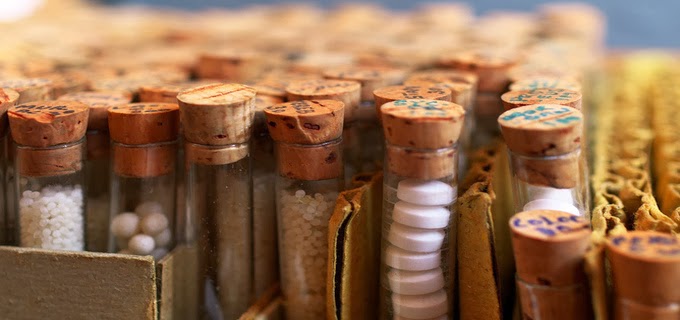This is a soft and porous sponge type of marine life. It
usually clings to the rocks and stones in the sea. Once detached or severed, it
settles to a new stony surface and starts growing rapidly. Thus a new sponge colony
forms. When dead, it floats on the surface of the sea. Some people pick it up
from there and sell it to make their living. On squeezing a sponge loses its
water, which it reabsorbs on the release of pressure. This quality of sponge is
permanent. Even if left as such for hundred years, it keeps its quality. The
Sponge is of great domestic use, and besides this, it has been used in many
remedies in a roasted form.
The homoeopathic remedy prepared from roasted sponge is
useful in many diseases. Its use is mostly related to asthmatic bronchitis and heart
problems. Cardiac asthma / cough is a condition in which the muscles
of the heart become weak, swollen and flabby. The resultant failure of the
heart muscles causes water logging in the lungs (pulmonary congestion), leading
to shortness of breath. Spongia is the best remedy for this condition. In this
type of cough, the breathing sounds like the sound of a saw. Spongia definitely
benefits the cough arising from failure of the heart. No other remedy will be
of avail in this kind of cough.
Cardiac
cough, associated with the feeling of fear, rapid shallow breathing
and the feeling of a failing heart, resistant to common remedies for asthma,
will be benefited by Spongia significantly.
Spongia, by way of the associated fear, also resembles Aconite. In fact,
fear is a very salient feature of cardiac
asthma. On waking up at night, the patient feels disorientated as to
where he is and where the door/window is. This can happen in the
patient’s own house, supporting further the diagnosis of Spongia. This
kind of mental
confusion is very pronounced in Spongia, though it can happen in other homoeopathic remedies too. A sudden frightful
wake-up
at night with anxiety is a very salient feature of Grandiola and Arsenic, but disorientation as to where the patient is,
besides Spongia, also present in Phosphorus, Lachesis, Carbo Veg,
Glonoine, Lycopodium and Aesculus. Whenever startled at night, a Spongia patient,
will be disorientated.Spongia is also very useful in the treatment of chronic failure and enlargement of the
heart. Usually, the heart once enlarged does not return to its
normal size. Spongia is one out of many possible homoeopathic remedies for this
condition. Rhus Tox should be specially studied in this connection. Besides
Spongia, Crataegus Q should also be used to strengthen the heart. Spongia is by nature a hot remedy. The
patient feels very hot and likes the open air. The symptoms become worse in a
heated room and with touch and pressure. It also aggravates on movement,
walking and bending over. A patient feels better in cold weather, except the cough,
which becomes more severe.
Spongia is also useful in the treatment of thyroid goitre. The thyroid
gland becomes enlarged but it is not hard. It is soft and resilient like a
sponge. In Spongia, the glands
inside the uterus also become swollen like a sponge. Children whose glands are swollen and their body is flabby
will benefit from Spongia. Some people have a double chin with soft skin hanging
down. Spongia is said to benefit them. There
is an interesting sign in Spongia i.e., the throat
becomes sore on eating sweets and candy. Spongia 30 will help
relieve this condition. Sweets must be abandoned during the course of the treatment
but may be tried again after a few days. If the sore throat returns, then
Spongia 200 should be tried. A Spongia patient is very restless at night and
unable to sleep soundly. He gets frequently startled
during sleep. His symptoms aggravate at night. Moreover, he cannot
sleep well during the day either. Spongia is very useful in the treatment of pericarditis (inflammation of
the outer lining of the heart) as well as the infection
of the heart (endocarditis).A Spongia patient becomes fatigued easily. There is severe headache due to increased blood flow to the head. The discharge
from the eyes
is very sticky. The nose feels blocked, though dry. Blisters form inside the mouth. The
throat feels stuck with a needle, is dry and very painful. A hissing type of
cough arises from the throat. In Spongia, the patient feels extremely hungry and thirsty.
The taste in the mouth is bitter. Menstrual bleeding decreases;
preceded by severe backache, increased appetite and palpitation
of the heart. The patient, during her periods, frequently wakes up at
night. The cough can become relentless and turns into asthma. The symptoms of Spongia aggravate on
climbing the stairs and at about midnight. The patient feels better on coming
down the stairs.





